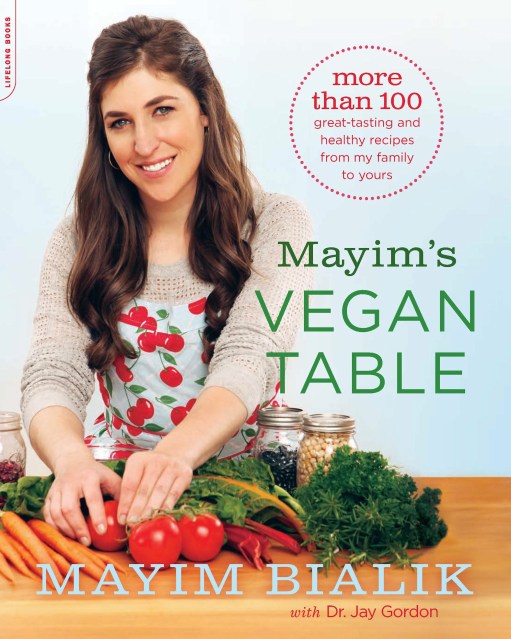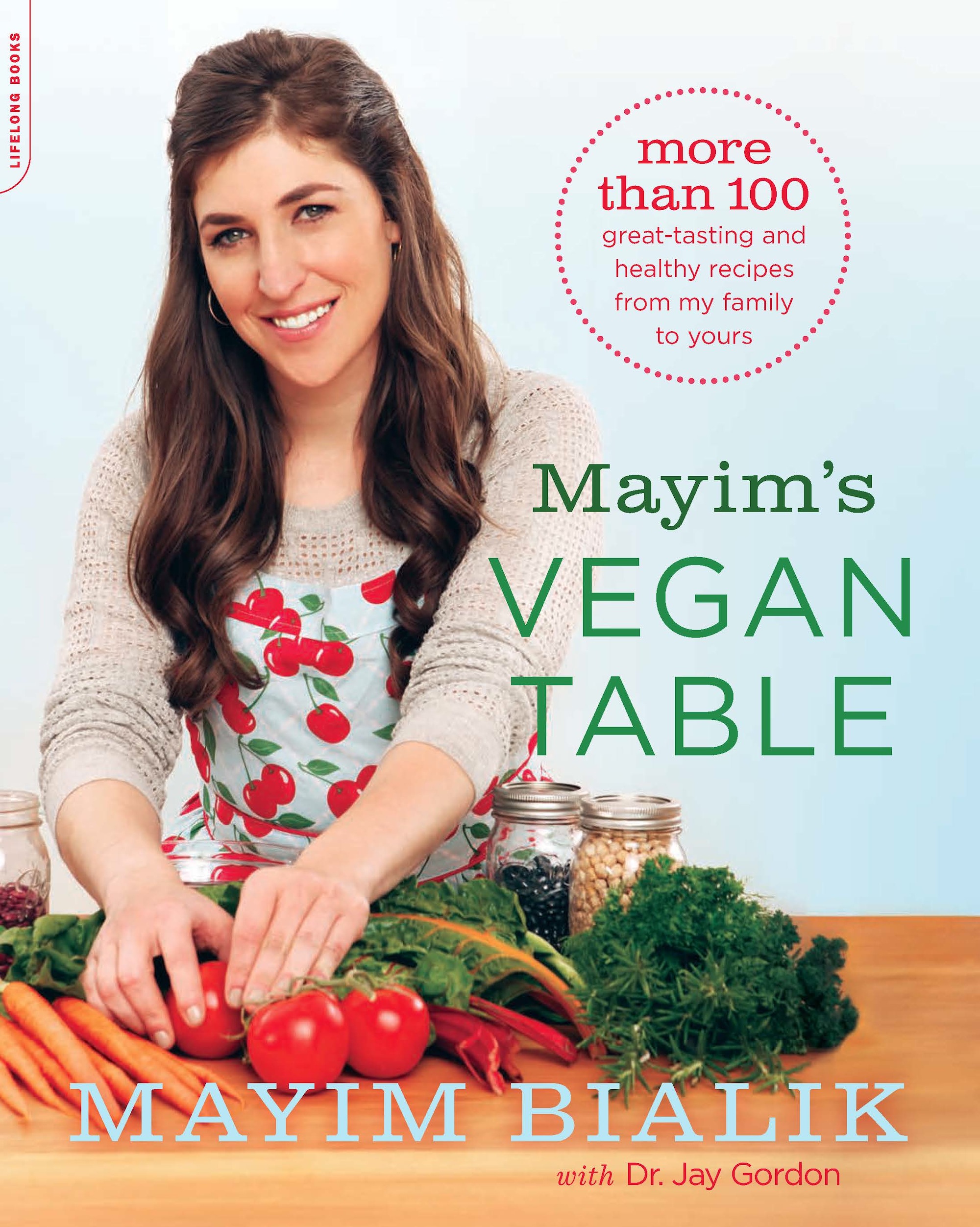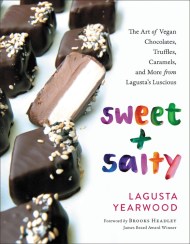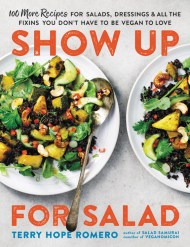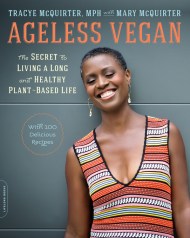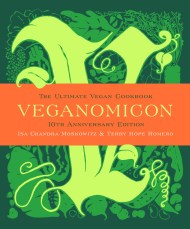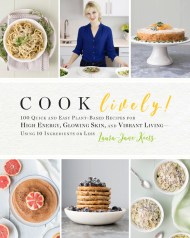Promotion
Use code MOM24 for 20% off site wide + free shipping over $45
Mayim's Vegan Table
More than 100 Great-Tasting and Healthy Recipes from My Family to Yours
Contributors
By Mayim Bialik
With Jay Gordon
Formats and Prices
Price
$13.99Price
$16.99 CADFormat
Format:
- ebook $13.99 $16.99 CAD
- Trade Paperback $21.99 $25.50 CAD
This item is a preorder. Your payment method will be charged immediately, and the product is expected to ship on or around February 11, 2014. This date is subject to change due to shipping delays beyond our control.
Also available from:
Actress Mayim Bialik shares the concerns of parents everywhere: when it comes to nutrition and feeding your family, you want healthy meals, but also food that everyone can enjoy, and a balanced lifestyle that’s inexpensive and fuss-free. Not only does Mayim share more than 100 easy plant-based recipes for dishes that are as delicious as they you are healthy, she has also teamed up with pediatrician Jay Gordon to offer:
- Basic nutritional information about a plant-based diet
- The real deal on raising kids on a plant-based diet (myths, debunked)
- Vegan family essentials (including a list of what to always keep in the pantry)
- Tips and strategies for easy meal planning and healthy eating out
And, of course, the food: you’ll find recipes for Mayim’s favorite breakfasts, snacks, lunches, dinners, and desserts, including kid-approved meals like build-your-own tacos and mac n cheez, Mediterranean and Asian-inspired salads that parents will love, comfort-food classics like kugel and matzoh ball soup, and many more.
Genre:
-
"Many readers will enjoy these easy, family-friendly recipes."Library Journal
-
"Mayim's Vegan Table was everything I expected and more: The PhD and mom is providing affordable, family-tested vegan recipes to parents everywhere who want to put healthy food on the table each night. Full of nutrition tips and practical advice...[with] comfort-food-style recipes."VegNews.com
-
"This family-friendly recipe pub is packed with convenient, delicious and nutritious meals to please even the pickiest palate...It also contains a comprehensive intro, addressing anticipated queries from potential purchasers. From combating the money myth-the misconception that eating vegan will somehow cost more than eating meat, dairy and eggs-to how to stock your pantry, from tips to e kids onboard (with the aforementioned dishes, we can't imagine it's too tough...) to what tools and appliances would be best to invest in, Bialik and her co-author, Dr. Jay Gordon, make it turnkey."Ecorazzi.com
-
"Mayim's Vegan Table...isn't your run-of-the-mill book of recipes. It's also a perspective-shifting manual for people looking to eat a more plant-based diet in the interest of health and eco-friendliness."RedbookMag.com
-
"Presents meals crafted with nutrition in mind...The information you need to provide your family with tantalizing plant-based recipes that are sure to please everyone at the table."Huffington Post
-
"Tasty recipes...All of [Bialik's] influences, past and present, are reflected in her new cookbook."Vegetarian Times
-
"Stocked with recipes for everything from mac and cheese to baked ziti to Israeli salad. All sans meat. All sans dairy."Chicago Tribune
-
"Bialik debunks plenty of myths about the challenges of getting children to eat healthy meals, and shows how vegan cooking doesn't have to be time-consuming or expensive...These are accessible, easy recipes featuring everyday ingredients that most home cooks already have on hand."Portland Oregonian
-
"A friendly introduction to the vegan lifestyle and seems particularly geared toward parents with young, picky eaters and little time to cook. Even if you're a committed omnivore, it's hard to argue that adding more plant-based foods to our menus is anything but a positive...Bialik offers a range of herbed and spiced dishes that will satisfy and make you feel good about your eating."Hadassah
-
"Do you define yourself as a busy parent? If so, then Mayim's Vegan Table is the perfect cookbook...Show[s] busy parents how to raise even the pickiest children with healthy eating habits."Natural Solutions
-
"A family-friendly guide to getting your kids to eat their veggies."Yoga Journal
-
"Offers the reader a chance to learn how to create a variety of dishes for a balanced plant-based diet. The recipes are quite diverse, including vegan versions of traditional Jewish dishes...A good book for someone new to the vegan diet."The Vegetarian
-
"While this book isn't going to have foodies rapturously tweeting about its mouth-watering recipes, it could just get your kids to eat more veggies, which, I can imagine, in some circles of exasperated parents, might be just the kind of cookbook one is looking for."Forward.com, The Jew and the Carrot blog
-
"Includes a handy, helpful list of ingredients and gadgets that make whipping up vegan meals a breeze."EverydayHealth.com
-
"This book is perfect for those who are looking for inexpensive, healthy meals to feed the whole family."PETA.org
-
"Shares tips on adopting healthier eating habits, and a slew of recipes...Filled with such useful, practical information that could help people live happier, healthier lives."Groupon Blog
-
"Written in a warm, easygoing, earth-mother style, the book addresses readers curious about vegan eating-for themselves but, also, maybe, for their kids...There's a lot of creative fun in the collection, as well as no-nonsense staples like potato salad, tomato soup, tacos and falafel."Philadelphia Daily News
-
"Our new favorite cookbook...We'll just sum it up with one word: Yum...Intensely flavorful, healthy recipes."Examiner.com
-
VegNews "15 Most Anticipated Vegan Cookbooks of 2014"VegNews
-
"The recipes are totally makeable."A.V. Club (The Onion)
-
"The recipes are nicely organized and instructions are clear...The index is extensive, and the beginning chapters will be wonderful for anyone who is interested in a vegan diet but not sure where to start. There are so many delicious-sounding recipes in here; this cookbook is a treat for anyone!"San Francisco Book Review
-
Green Book Festival, 2014 Runner-Up, Cookbooks Category
-
"Carnivores need not fear: Mayim's Vegan Table is fit for every eater. Bialik does an excellent job of convincing readers that the foods that are good for us can taste good, too."ElizabethStreet.com
-
"The book debunks the myths about raising vegan children and offers a medical perspective that will give parents added food for thought...You'll find no shortage of scrumptious family recipes."Clean Eating
-
"The book is filled with user-friendly recipes that aren't overly complicated, with ingredients most home chefs would likely have in their pantry or that would be easily obtained at a neighborhood supermarket."Asbury Park Press
-
"Will be a hit with fans of The Big Bang Theory but it should be checked out by anyone who likes eating good, plant-based dishes...[Bialik] debunks the myths about raising kids on a plant-based diet, offers basic nutritional information that's hard to find, and (also a rarity) includes a modern twist on some classic Jewish recipes."The Advocate
-
"This celebrity mom covers the environmental, ethical and nutritional reasons for switching to a vegan diet and then offers practical tips for getting meals on the table."Portland Press Herald
-
"Offers busy parents practical and down-to-Earth advice on dishing up tasty and healthful vegan foods that the whole family will love. Whether you're already vegan or just starting down the path, Mayim's easy, family-friendly recipes...will make mealtime a breeze."PETA's Animal Times
-
"A vast amount of meal ideas with focus on the vegan family...Delightful and entertaining."Vegan Lifestyle Magazine
-
"Provides useful information on stocking your vegan pantry...The recipes and recipe instructions are very good. The recipe layout is excellent, mostly a single page (or facing pages) for each recipe. Head notes are nice and so are the many kitchen tips and sidebars."Portland Book Review
-
"Mayim's Vegan Table isn't just another vegan cookbook that will acquire dust and end up in the back of your cupboard. It's one that's sure to become a permanent fixture on your kitchen counter, quickly collecting food stains on the pages of your favorite recipes...This cookbook gets back to basics by keeping the recipes simple with minimal steps and easy to find ingredients...Offers a wide variety of dishes perfect for all occasions...Also provides the reader with lots of additional helpful information such as, kitchen basics, easy meal tips, what items to keep stocked, and important plant-based nutritional information...The reader simply needs to create a few of Mayim's dishes to quickly learn for oneself what a joy vegan eating can be."FARM blog
-
"Always family-forward and always easy, this book is a wonderful resource for any vegan kitchen and well beyond...A well-written, well-researched, and honest book."The Weiser Kitchen
-
"Bialik includes nutritional information, tips for stocking a vegan kitchen, and compelling health, environmental and ethical reasons for going vegan, plus lots of mouth-watering photographs."Mother Nature Network
-
"Includes a handy, helpful list of ingredients and gadgets that make whipping up vegan meals a breeze."EverydayHealth.com
-
"Bialik displays her in-depth knowledge of Veganism, providing in-depth, but understandable explanations of how to lead a vegan lifestyle from her own personal experience as a vegan, going back close to twenty years as well as bringing up her two sons as vegans also."Jewish Business News
-
"Organized, concise and approachable and manages to avoid getting preachy...This is a refreshing, realistic approach that I think most families can appreciate and introduce into their lifestyle, even in small ways...A good family, vegan cookbook for beginners. It is a well-organized, no nonsense cookbook which has a variety of recipes that will satisfy everyone's taste buds from kids to adults."WickedVegan.com
-
"While you may not be ready to go completely plant-based at home, you will definitely want to try some of the recipes in this cookbook."PrimetimeParenting.com
-
"Mayim makes a compelling case for eating a vegan diet and raising kids that way. Her book offers not only a really nice variety of very real-life recipes, but also a wealth of information about vegan nutrition and alternatives to more conventional (animal-based) foods. But vegan philosophy or not, her book is at heart a cookbook filled with ideas for healthy things to feed your family. Everyone can find lots of new ideas here that their kids would eat and enjoy. And if you are looking for a vegan cookbook because you're vegan, too, this is a great choice."Natural Jewish Parenting blog
-
"Highlights options that are better and tastier than many might expect."Milwaukee Shepherd Express
-
"Bialik has blossomed into a helluva great vegan cook...[She] shows busy parents how to raise even the pickiest children with healthy eating habits."Examiner.com
-
"Although not specifically a kosher cookbook, this is absolutely a kosher cookbook. Every recipe can be prepared kosher...Learn what a plant-based pantry should look like, and which kitchen gadgets are essential. Yes, after reading this book, and trying the recipes, you may be tempted to go vegan!"KosherEye.com
-
"Offers some interesting and healthful recipes that families committed to vegan foods will enjoy trying."InfoDad
-
"With a simple layout and quick recipes, the book would make a welcome addition on the cookbook shelf for a home cook just getting into vegan cooking. For veteran vegan cooks, she offers ways to spice up the family menu. As an active vegan mother, her home menus are both surprisingly down to Earth and quick to prepare."SandandSuccotash.com
-
"Plenty of nutritional advice is offered."Na'amat Woman
- On Sale
- Feb 11, 2014
- Page Count
- 256 pages
- Publisher
- Da Capo Lifelong Books
- ISBN-13
- 9780738217055
Newsletter Signup
By clicking ‘Sign Up,’ I acknowledge that I have read and agree to Hachette Book Group’s Privacy Policy and Terms of Use
